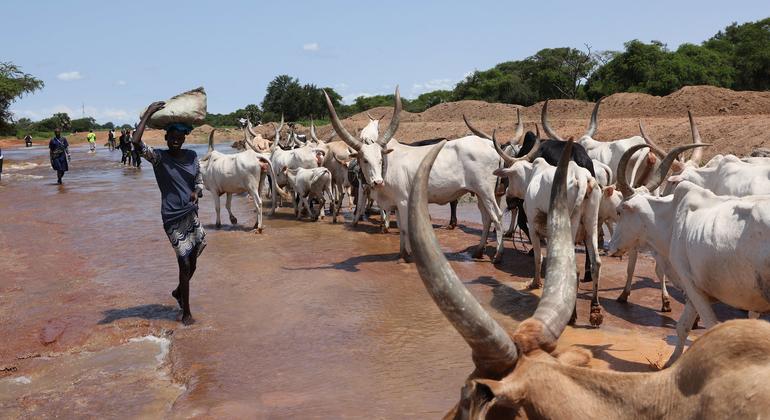The world is facing a climate crisis like never before, with 2023 being recorded as the warmest year on record by a significant margin. The first eight months of 2024 have followed suit, with record-breaking temperatures continuing to rise. WMO Secretary-General Celeste Saulo has issued a stark warning, emphasizing the urgent need for ambitious action to combat climate change and achieve sustainable development goals.
Ms. Saulo’s plea for global cooperation comes in response to the alarming findings of the latest United in Science report, which predicts that record levels of greenhouse gases will only exacerbate global temperature increases. The consequences of this are already being felt around the world, with extreme weather events wreaking havoc on communities and economies.
Deadly wildfires in Latin America and Portugal, catastrophic flooding in central Europe caused by Storm Boris, and devastating floods and landslides in Southeast Asia triggered by Typhoon Yagi serve as grim reminders of the urgent need for action. Ms. Saulo’s call for urgent and ambitious action is echoed by experts and scientists worldwide, who warn that the decisions made today will determine the future of our planet.
As the world prepares for the upcoming Summit of the Future at UN headquarters in New York, Ms. Saulo highlights the untapped potential of natural and social sciences, as well as new technologies and innovations, in addressing the challenges posed by climate change. AI, machine learning, cutting-edge satellite technologies, and virtual reality simulations are already revolutionizing weather forecasting and disaster preparedness efforts.
The value of satellite technology in climate science cannot be overstated, as it allows for improved monitoring of greenhouse gas emissions and carbon sinks. Innovations such as digital twin technology, which creates virtual replicas of physical objects like the Earth, and virtual reality simulations hold promise in achieving sustainable development goals and enhancing disaster preparedness efforts.
Ms. Saulo emphasizes that while technology plays a crucial role in addressing climate change, global cooperation and knowledge sharing are equally essential. The Summit of the Future presents an opportunity for countries to come together and share their expertise and experiences in utilizing science and technology to achieve global goals.
These goals include the Paris Agreement, the Sendai Framework for Disaster Risk Reduction, and the 2030 Agenda for Sustainable Development (SDGs). The international community must work together to meet these objectives and ensure a sustainable future for generations to come.
In conclusion, the urgent need for action on climate change cannot be ignored. The time to act is now, and the decisions made today will have far-reaching consequences for the future of our planet. Through global cooperation, innovative technologies, and a shared commitment to sustainability, we can overcome the challenges posed by climate change and create a better world for all.









